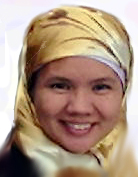Heritage Conservation through the development of Culturally-Sensitive Science Curriculum
Heritage Conservation through the
development of Culturally-Sensitive Science Curriculum
Concept Note
Cultural heritage conservation helps a
community not only to protect its viable economic physical assets,
but also preserve its practices, history, and environment, and a
sense of
continuity and identity. Heritage
conservation is deeply derived from an appreciation of
locally-developed culture and worldview. Part of these worldviews
are holistic and integrated systems of knowing and apprehending the
natural world which are culturally-congruent. Traditional knowledge
and technologies locally-developed facilitate sustainable and ethical
use of resources as well as valuation and maximization of materials
readily-available to the local population.
However, the current educational
system, as well as the current perception of science, and,
consequently, science education, are Western-derived and -oriented.
While Eurocentric science, with its analytic and positivist
philosophical underpinnings, has allowed for the development and
elucidation of powerful universal models for explaining natural
phenomena and accounting for the unseen.
As we move in to standards-based
education using western-derived philosophies, tensions are created
between traditional knowledge systems and the new ways of knowing and
doing. There is a general tendency for current educational material
to disregard indigenous knowledge systems as unscientific,
antiquated, and superstitious. The end result is that the two
knowledge systems are constantly competing for dominance in the
students' minds, and eventually one is accepted and applied, while
the other is devalued and discarded. Most times, classroom science
is at the losing end of the deal, as it is seen as culturally
incompatible. It is perceived as not applicable to life outside the
classroom, it tends to contain counter-intuitive principles, and is
generally rife with irrelevant information. Thus, science literacy,
the ideal outcome of science education in basic education, is not
achieved.
The ideal science curriculum then
incorporates the best of both worlds and starts with the development
of a culturally-sensitive curriculum that validates local knowledge
and values while presenting the gains of Eurocentric science as a
means of enhancing and improving on local perspectives. This means
that one has to expand the definition and construct of science beyond
the limits imposed by materialism and positivism to encompass the
many ways by which people interrogate and make sense of the natural
world. This also means that one has to honor traditional ways of
knowledge transfer outside the school system, but still be
well-versed in the principles embodied by the worldview and the ways
of testing and validating experiences in order to faithfully
integrate them into the classroom.
It is in the hope of developing this
curriculum, as well as a teacher-training component to ensure its
effective delivery, that heritage conservation is taken a step
further to enrichment to make it current and compatible with the
modern world.


0 Comments:
Post a Comment
Subscribe to Post Comments [Atom]
<< Home